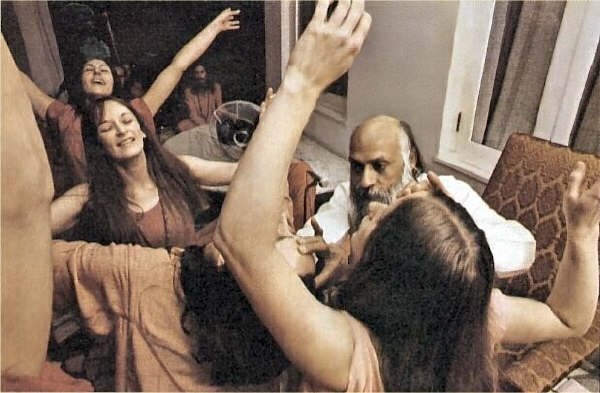IT IS said about a great sage who was a prime minister: When he was appointed prime minister to a king, he was almost a beggar on the streets. But the news of his wisdom spread, rumors started coming to the palace, and the king started going to him and he was impressed. He was tremendously impressed by the man and his insight — he appointed him his prime minister.
The beggar came to the palace. The king said, "Now you can drop your robe." Beautiful clothes were ready for him. He was given a good bath; beautiful robes were given to him, ornaments — and as befits a prime minister.
Then everybody became intrigued by the fact that in one room he had something like treasure locked. And every day he used to go, unlock the door — he would go alone, he would not allow anybody inside — lock the door again, and he would remain there for at least half an hour, then come out. Everybody became suspicious: What is happening in that room? What is he having in that room? Is there some conspiracy? Is there some secret? And, of course, the king also became interested.
One day the king said, "I would like to come with you in your private room. I could not sleep last night. I continuously worried about what is there."
The prime minister said, "There is nothing. And it is not worthy of your eyes. I will not take you."
The king became even more suspicious. He said, "There seems to be some danger! I cannot allow this to happen in my palace. You will have to take me in!"
The prime minister said, "If you don't trust me then I will take you in — but then this is the end of my prime-ministership. Then take my resignation and come into the room. Otherwise, trust me and never ask about the room!"
But the king was really suspicious. He said, "Okay, you give your resignation but I am coming into the room.
With his whole court they entered. There was nothing… his old robe. Just the old robe hanging on a nail in the room. They looked around: there was nothing — the room was empty. They said, "Why do you come here?"
He said, "Just to see this robe — to remind me that once I was a beggar, and any day I will be a beggar again. Just to remind me so that I don't get too much attached to this prime-ministership."
He dropped out of his dress, took his robe. The king started weeping and crying; he said, "Don't go!" But he said, "Now, enough is enough. You could not trust me, and when there is no trust there is no point in my being here. I must go."
But he left the palace the same way he had entered one day. Those ten, twelve years he remained the prime minister meant nothing; that was just an accident.
This is the way to watch life.
Whatsoever is accidental… you are living in a big house, in a palace. Remember that if this palace is taken away from you, there is no point in becoming depressed. Once you were living outside the palace, so again you are under the sky. You become very respectable, and then something happens… you are condemned by the society. What is the point to be worried about it? One day you were not famous at all and you were happy — again you can be happy.
One day you were not in this world! When you were not born, do you remember that you were in any way unhappy? — then why be worried when you die? You will be again in the same state. You were not, and you don't remember any unhappiness. One day you will again disappear… why be worried? You will be again in the same state: you will not be again — at least not in the way that you are here.
This is what Zen people say: Find out your original face — the face that you had before you were born, and the face that will be there when you are dead. Find out the eternal, and don't pay much attention to the accidental.
If you can drop out of the accidental, you have dropped out of the world. There is no need to go anywhere: it is an inner attitude.
OSHO


